|
The following post has been adapted from the sermon, "Remember," preached on July 21, 2019 at Peace Tree. Scroll down to watch the live stream video from that day.
Have you ever considered how important memories are? They place us in a larger story. They remind us who we are, where we came from, how far we’ve traveled, what makes us tick, and why we behave the way we do. Memories cause us to say things like “When I was your age…” Memories make us feel nostalgic; we think of simpler times, or perhaps we look back fondly and simplify the difficult times because we’re no longer in the midst of storms or battles. Our stories are filled with memories, but oral and written stories aren’t the only mediums which arouse memories. Sometimes smells, places, people, and songs carry their own memories. Think about your grandmother’s house and the aroma which filled the air right after she had finished preparing your favorite dish. How often do you return to the restaurant you ate at when you and your spouse went on your first date? Have you ever returned to the hospital where your children were born? Do the fun songs you sang at summer camp ever pop into your head after all these years? As individuals, we remember stories and recall memories that are important to us and our families. As the church, it’s important for us to remember too. We must share our memories with those who are younger in the faith. We have a responsibility to show others where we came from so that we have a better sense of where we are going. We do this every time we read Scripture, every time we pray the Lord’s prayer or recite the 23rd Psalm, every time we sing a hymn like Blessed Assurance with the refrain, “This is my story, this is my song…” It’s important for us to remember God’s story and to locate our lives inside that larger story. We’re able to recall certain memories from Scripture readings and prayers, and we remember moments in our faith journey whenever we sing certain songs. But there are particular rituals and sacred moments that have actually built memory into their own practices and liturgy. For instance, every time we celebrate Communion, we repeat Jesus’ words: “Take, eat; this is my body which is given for you…Drink this wine, all of you; this is my blood of the new covenant poured out for you and for many for the forgiveness of sins. Do this, as often as you drink it, in remembrance of me.” Jesus asks us to remember him. In our faith tradition, Holy Communion is one of only two sacraments with the other sacrament being Baptism. These are sacred moments when heaven comes down and kisses earth, when the community of those who have passed away surround us and celebrate with us. It’s a moment when God reaches out and imparts His grace, allowing us to glimpse the character and fullness of God. Now, there’s nothing magical about the wine or the bread; the baptismal fount isn’t enchanted. However, there is something that can only be described as life-giving when the water of baptism touches our head. When we’re given opportunities to remember our baptism and to feel the cool, familiar touch of the water on our skin we are reminded that Jesus has washed away all of our sins. I grew up in a very traditional United Methodist church with a pipe organ, a 40 person choir, acolytes, torch bearers, and a crucifer who lifted high the cross and led the choir in by processional every week. We even took the Bible off the altar, walked it into the middle of the sanctuary, and read Scripture while everyone stood and turned to face the God’s Holy Word. During baptisms, the pastor of my home church would take this silver object filled with baptismal water, and he would shake it at the congregation so that drops of water would land on us, and he’d say the words, “Remember your baptism and be thankful.” One of our pastors conducted infant baptisms in a way that would make me chuckle. He’d get a squirmy baby in his arms, typically in a fancy white baptismal gown, and he’d dip his hands in the water and place it on the child’s head and say the words, “I baptize you in the name of the Father, and of the Son, and of the Holy Spirit.” But then, he’d take the baby in his arms and walk the child down the length of the middle aisle, showing the congregation this newly baptized member of God’s family. The reason this practice of showing off a newly baptized baby made me chuckle was because it always reminded me of how Rafiki from The Lion King presented Simba as a newly baptized lion cub to the animal kingdom at the start of the movie.
The opening scene from this 1994 animated classic contains everything we see in church baptisms: parents who are proud of their child, friends and family who are there to lend their support, and an over-excited pastor who likes showing off babies to the entire congregation.
What an incredible moment it is when the sunlight breaks through the clouds and shines down on Simba, Rafiki, and all those on Pride Rock. I have to believe that the animators took some inspiration from Jesus’ baptism as seen in the Gospels. For instance, Matthew 3:16 reads, “Once he had been baptized, Jesus emerged immediately from the water. And behold, the heavens were opened, and he saw the Spirit of God, descending like a dove and alighting on him.” There’s another part of Jesus’ baptism that I swear the writers of the Lion King ripped straight from the Bible. After Simba’s birth, baptism, and presentation on Pride Rock, his father Mufasa dies at the hands of Scar; however, Simba blames himself for his father’s death and runs away. But then, Rafiki, the shaman mandrill from the beginning of Simba’s story, is able to track down Simba. Rafiki finds a lion who is all grown up, and he tells Simba that Mufasa still lives before leading him to a pool of water. Simba looks into the water and sees himself. He mutters to Rafiki, “That’s not my father! That’s just my reflection.” Rafiki says, “No, look harder. You see? He lives in YOU!” Immediately, Simba hears his name called from the heavens: “Simba, you have forgotten who you are and so have forgotten me. Look inside yourself…Remember who you are. You are my son, and the one true king. Remember who you are…remember, remember, remember.”
Compare this scene to Matthew 3:17 which reads, “And behold, a voice from the heavens was saying: “This is my son, the beloved, with whom I am well pleased.”
Eugene Peterson paraphrases Jesus’s baptism this way: “The moment Jesus came up out of the baptismal waters, the skies opened up and he saw God’s Spirit - it looked like a dove - descending and landing on him. And along with the Spirit, a voice: ‘This is my Son, chosen and marked by my love, delight of my life.’” Simba forgets who his father is and thus loses his identity. It’s only by working through the tough memories, by reclaiming his place in the larger story, by remembering who is father is that Simba fulfills his purpose and recovers from the trauma of his childhood. The baptisms and epiphanies we witness in Matthew’s Gospel and in The Lion King are enough to make us ask: Have we forgotten who we are? Have we allowed ourselves to be distracted by outside influences? Have we allowed the hurts from our past to cloud our memory and cause us to lose our identity? Perhaps it’s time remember who you are and whose you are. Remember that God has claimed you. God has adopted you. God has spoken your name. The Almighty has covered you with grace, has anointed you, and has washed away your sins. Let’s remember our baptisms and be thankful! Let’s live according to the example of Christ. Let’s demonstrate love and forgiveness to each person we encounter. Let’s continue making disciples of Jesus Christ, baptizing them in the name of the Father, and of the Son, and of the Holy Spirit. Let’s remember who we are. Amen. How many of you remember the climactic scene from Indiana Jones and the Last Crusade? If you’ll recall, Indiana has to pass through three challenges in order to reach the Holy Grail and save his father from certain death. His father, played by Sean Connery, had been researching the Holy Grail and wrote down three clues to allow for safe passage through the challenges, allowing someone to successfully reach the Grail.
Indiana makes it through because he has a book to guide him. Now, I don’t know how often you feel like you’ve had to make a Leap of Faith. For me, agreeing to be on the Peace Tree Launch Team in 2015 was a Leap of Faith. Like Indy, I’m not sure I would have made the leap if I didn’t have my book, the Bible. My first year on the Launch Team was my last year of Disciple Bible study (six years earlier when I started the Disciple series, I wasn’t sure I would get past the first year much less complete the whole series). Planting a church was not on my radar. I had no thoughts of leaving Collierville United Methodist Church. I was comfortable. Paul and I had joined Collierville UMC in 1999. We had been members long enough that we had been involved in several areas and knew many people. We liked our Sunday School class a lot. I even started to occasionally fill in for our Sunday school teachers during the summer months to give them a break. Our youngest child, Caleb, was very involved in all of the children’s programming and continued to be involved as he grew up and joined the youth program. He earned a trophy memorizing the books of the Bible and taught himself guitar so he could play in the youth praise band. Rev. Harry Durbin had invited him to be on his team in a Scrabble tournament, and he went on numerous youth trips to Mountain TOP, Breakthru, BigStuf Camps, Lake Junaluska and Lakeshore Camp. I had been intrigued by Disciple Bible Study for a while. I knew many members of my Sunday School class had taken Disciple lessons, and they all spoke highly of the courses. I had enrolled once before but I was still working a full-time job, and with the kids’ schedules it was a struggle to keep up. Finally the time came where my husband, Paul, and I could take the course at the same time. We started with over 20 people that first year. People came and went over the six years we participated in Disciple, but a core group of six made it through all six years. We formed really close friendships with those people as we studied Scripture together and prayed for each other during that time. Little did I know that as I was working through these lessons throughout the Bible and on Christian & Methodist theology, God was preparing me to take my Leap of Faith. Just getting the overview of the Bible in the first year and understanding how the Old Testament and the New Testament work together was eye-opening. By Year Six we compared the Gospels and talked about what was the same, what was different, and why. When we heard at Collierville UMC that Pastor Kristofer would be planting a church and putting together a Launch Team, I was immediately excited. But that excitement was followed by a great sense of doubt. What if I wanted to serve on this team but my husband didn’t? What if we wanted to do this but Kristofer had enough volunteers or didn’t feel he needed us? How long would we have to commit before we could return to CUMC? I am not sure how called my husband felt to this new church plant, but he agreed to join me for a face-to-face talk with Pastor Kris. I do remember telling Paul after our talk that I did not want us to be at separate churches, so if he wasn’t comfortable with moving forward then we would stay at CUMC. However, since we had built up a better Biblical foundation through Disciple, and because we truly believed Kris was answering God’s call, we decided to take the leap. Then as Rev. David Atkinson, the senior pastor at CUMC said, it got real! It became clear to us with each passing week that church planting was bigger than we realized and better than we hoped. Faith is not a one-time thing. Faith is part of the lifestyle of a disciple of Jesus Christ. Faith is trusting Him. John Wesley was particularly concerned about inviting people to experience grace and to grow in their knowledge and love of God through disciplined Christian living. He emphasized that Christian living is putting faith and love into action. Wesley believed in salvation by God’s grace but was convinced that salvation should evidence itself as faith and love in action. We each are called to take a Leap of Faith. We each must answer our own call. Your call may be the similar to someone else’s call; it may be completely different. The point is that we have a Good Book to help us get ready and to prepare for that call. The Bible is a book that will help us see the signs and recognize them. It’s a book that teaches us the correct response to God’s call. It leads us to the understanding that faith grows through our participation in the church community — a community where we are nourished and equipped for mission and service to the world. Every House Group host at Peace Tree takes a Leap of Faith when they open up their home to both church members and guests. Young people and families take Leaps of Faith when they come forward to be baptized and when they decide to join our congregation as members. Our service groups SIS and BRO have taken Leaps of Faith when they decided to organize and begin serving the people of our community with their time and energy. Our students have taken Leaps of Faith by joining multi-generational House Groups instead of joining a more age-specific children’s program or youth group. So, now the questions for you are: How is God calling you? Are you ready to take your Leap of Faith? May God bless you as you answer the call. +Lisa Junkins Not every workplace observes Good Friday as a holiday (i.e. Holy Day), and not everyone has the ability to attend a Good Friday worship service in person. So, we've assembled these prayers, pictures, and readings for you to use on your own time. As you do so, reflect on Jesus' sacrifice, his death on a cross, and the depths of God's love for all of humanity. Christ himself bore our sins in his body on the tree that we might die to sin and live to righteousness. So, let us pray: Almighty God, your Son Jesus Christ was lifted high upon the cross so that he might draw the whole world to himself. Grant that we, who glory in this death for our salvation, may also glory in his call to take up our cross and follow him; through Jesus Christ our Lord. Amen. (The United Methodist Book of Worship, "A Service for Good Friday") See, my servant shall prosper; he shall be exalted and lifted up, and shall be very high. Just as there were many who were astonished at him—so marred was his appearance, beyond human semblance, and his form beyond that of mortals— so he shall startle many nations; kings shall shut their mouths because of him; for that which had not been told them they shall see, and that which they had not heard they shall contemplate. Who has believed what we have heard? And to whom has the arm of the Lord been revealed? For he grew up before him like a young plant, and like a root out of dry ground; he had no form or majesty that we should look at him, nothing in his appearance that we should desire him. He was despised and rejected by others; a man of suffering and acquainted with infirmity; and as one from whom others hide their faces he was despised, and we held him of no account. Surely he has borne our infirmities and carried our diseases; yet we accounted him stricken, struck down by God, and afflicted. But he was wounded for our transgressions, crushed for our iniquities; upon him was the punishment that made us whole, and by his bruises we are healed. All we like sheep have gone astray; we have all turned to our own way, and the Lord has laid on him the iniquity of us all. He was oppressed, and he was afflicted, yet he did not open his mouth; like a lamb that is led to the slaughter, and like a sheep that before its shearers is silent, so he did not open his mouth. By a perversion of justice he was taken away. Who could have imagined his future? For he was cut off from the land of the living, stricken for the transgression of my people. They made his grave with the wicked and his tomb with the rich, although he had done no violence, and there was no deceit in his mouth. Yet it was the will of the Lord to crush him with pain. When you make his life an offering for sin, he shall see his offspring, and shall prolong his days; through him the will of the Lord shall prosper. Out of his anguish he shall see light; he shall find satisfaction through his knowledge. The righteous one, my servant, shall make many righteous, and he shall bear their iniquities. Therefore I will allot him a portion with the great, and he shall divide the spoil with the strong; because he poured out himself to death, and was numbered with the transgressors; yet he bore the sin of many, and made intercession for the transgressors. Isaiah 52:13-53:12 Then Pilate took Jesus and had him flogged. And the soldiers wove a crown of thorns and put it on his head, and they dressed him in a purple robe. They kept coming up to him, saying, “Hail, King of the Jews!” and striking him on the face. Pilate went out again and said to them, “Look, I am bringing him out to you to let you know that I find no case against him.” So Jesus came out, wearing the crown of thorns and the purple robe. Pilate said to them, “Here is the man!” When the chief priests and the police saw him, they shouted, “Crucify him! Crucify him!” Pilate said to them, “Take him yourselves and crucify him; I find no case against him.” The Jews answered him, “We have a law, and according to that law he ought to die because he has claimed to be the Son of God.” Now when Pilate heard this, he was more afraid than ever. He entered his headquarters again and asked Jesus, “Where are you from?” But Jesus gave him no answer. Pilate therefore said to him, “Do you refuse to speak to me? Do you not know that I have power to release you, and power to crucify you?” Jesus answered him, “You would have no power over me unless it had been given you from above; therefore the one who handed me over to you is guilty of a greater sin.” From then on Pilate tried to release him, but the Jews cried out, “If you release this man, you are no friend of the emperor. Everyone who claims to be a king sets himself against the emperor.” When Pilate heard these words, he brought Jesus outside and sat on the judge’s bench at a place called The Stone Pavement, or in Hebrew Gabbatha. Now it was the day of Preparation for the Passover; and it was about noon. He said to the Jews, “Here is your King!” They cried out, “Away with him! Away with him! Crucify him!” Pilate asked them, “Shall I crucify your King?” The chief priests answered, “We have no king but the emperor.” Then he handed him over to them to be crucified. So they took Jesus;and carrying the cross by himself, he went out to what is called The Place of the Skull, which in Hebrew is called Golgotha. There they crucified him, and with him two others, one on either side, with Jesus between them. Pilate also had an inscription written and put on the cross. It read, “Jesus of Nazareth, the King of the Jews.” Many of the Jews read this inscription, because the place where Jesus was crucified was near the city; and it was written in Hebrew, in Latin, and in Greek. Then the chief priests of the Jews said to Pilate, “Do not write, ‘The King of the Jews,’ but, ‘This man said, I am King of the Jews.’” Pilate answered, “What I have written I have written.” When the soldiers had crucified Jesus, they took his clothes and divided them into four parts, one for each soldier. They also took his tunic; now the tunic was seamless, woven in one piece from the top. So they said to one another, “Let us not tear it, but cast lots for it to see who will get it.” This was to fulfill what the scripture says, “They divided my clothes among themselves, and for my clothing they cast lots.” And that is what the soldiers did. Meanwhile, standing near the cross of Jesus were his mother, and his mother’s sister, Mary the wife of Clopas, and Mary Magdalene. When Jesus saw his mother and the disciple whom he loved standing beside her, he said to his mother, “Woman, here is your son.” Then he said to the disciple, “Here is your mother.” And from that hour the disciple took her into his own home. After this, when Jesus knew that all was now finished, he said (in order to fulfill the scripture), “I am thirsty.” A jar full of sour wine was standing there. So they put a sponge full of the wine on a branch of hyssop and held it to his mouth. When Jesus had received the wine, he said, “It is finished.” Then he bowed his head and gave up his spirit. John 19:19-30 Since it was the day of Preparation, the Jews did not want the bodies left on the cross during the sabbath, especially because that sabbath was a day of great solemnity. So they asked Pilate to have the legs of the crucified men broken and the bodies removed. Then the soldiers came and broke the legs of the first and of the other who had been crucified with him. But when they came to Jesus and saw that he was already dead, they did not break his legs. Instead, one of the soldiers pierced his side with a spear, and at once blood and water came out. (He who saw this has testified so that you also may believe. His testimony is true, and he knows that he tells the truth.) These things occurred so that the scripture might be fulfilled, “None of his bones shall be broken.” And again another passage of scripture says, “They will look on the one whom they have pierced.” After these things, Joseph of Arimathea, who was a disciple of Jesus, though a secret one because of his fear of the Jews, asked Pilate to let him take away the body of Jesus. Pilate gave him permission; so he came and removed his body. Nicodemus, who had at first come to Jesus by night, also came, bringing a mixture of myrrh and aloes, weighing about a hundred pounds. They took the body of Jesus and wrapped it with the spices in linen cloths, according to the burial custom of the Jews. Now there was a garden in the place where he was crucified, and in the garden there was a new tomb in which no one had ever been laid. And so, because it was the Jewish day of Preparation, and the tomb was nearby, they laid Jesus there. John 19:31-42 Almighty God,
graciously behold this your family, for whom our Lord Jesus Christ was willing to be betrayed into the hands of sinners, and to suffer death upon the cross; who now lives and reigns with you and the Holy Spirit, One God, for ever and ever. Amen. (The Book of Common Prayer) Pastor Kris preached "Live Together / Follow Christ" on the Sunday following the 2016 presidential election. Below is his sermon manuscript, and you can watch the full sermon in the video below. The Scriptural focus for this sermon is Luke 5:1-11. Please share your thoughts and reflections in the Comments section. Here we are for the fourth time in this place to worship God, but what marks this Sunday as different from earlier Preview Services is that the presidential election has taken place in our country merely 5 days ago. And I'd be a horrible preacher if I didn't address this moment in our country's history. So on this day, as I address two of Peace Tree's core values (Live Together and Follow Christ), I do so knowing that some people sitting in this movie theater voted for Trump and others voted for Clinton. Some voted for a 3rd party candidate and some wrote in Mickey Mouse or wrote in Harambe. But here we are...together, singing our praises to God, hearing the story of Jesus calling his first disciples to follow him, and we are all members of the same human family. It's probably safe to say that there are as many different opinions about this country and its priorities and the steps we need to take as there are people sitting in this room. So we have one of two choices to make today and everyday, and here they are: do we choose to turn our backs on our neighbors who are different than us? Do we hate those who disagree with us? Do we say, "I'll go it alone?" OR do we say that we choose to live together, that we embrace each other as brother and sister, and that we claim one another as family. Jesus never held public office as an elected official, but he was called the King of the Jews. And as the King of the Jews (a.k.a the Son of God and the Son of Man), he addressed economic disparity, accepted people from other cultures, disrupted the establishment, was branded a radical and a religious zealot, and he taught a new way. But by doing all of this, he put a target on his back. Ultimately, the people of Israel were given a chance to vote on Jesus. They could vote to free Christ during the Jewish feast of Passover, but instead they chose to free another prisoner, and thus, the Son of God was crucified. But in Jesus' sacrifice, in taking on our sin, and in demonstrating God's great love for humanity, Christ gave us all a path to citizenship in God's Kingdom. So when we say that at Peace Tree we Live Together and Follow Christ, we do so claiming our shared inheritance in Christ. We don't focus on the things the world focuses on: the spectrum of ages, the differences in income, the number of cultures represented here today. Instead we rally around Christ and his mission in saving this world and pointing people to God. When we look at this morning's passage from the Gospel of Luke, we see Peter putting into practice the core value of Live Together. Peter does not work alone; he has fishing partners that we find out are the brothers James and John. Not only that, but when the fish that Jesus instructs them to catch becomes too great to haul in, they're able to signal another boat for help. In their day and time, you needed a community to get by, to live and to eat. Friends and neighbors looked out for each other, and here we see them working alongside one another. But what amazes me most about this invitation to follow Christ, is that Peter, James, and John drop everything (and I mean everything!) in order to follow Jesus. They leave behind their livelihoods, their families, and now this insurmountable catch of fish that may have possibly met their quota for the rest of the year, all in order to follow Christ! How many of us would walk away from our careers, and our families, and from financial stability to follow a divisive figure who was performing miracles and claimed that he spoke directly to God? Some of you are thinking, "This is nice and all, learning about Peter and James and John from 2000 years ago, but we're scared right now, today on Nov 13, 2016. And I get it; some people are fearful for their community, others are scared that the country will not come together - that we won't be the UNITED States, and for others there is uncertainty about the future when it comes to wars being fought, and when it boils down to the stock market, or healthcare and national security." So let me offer a word from Ricky James, a friend and pastor in Mississippi, who shared this post on his Facebook page Wednesday morning: "At around 3:00 a.m. this morning my five year old climbed in our bed. He said he was afraid of the dark. This is a common occurrence these days as he wakes up in the middle of the night, alone in a dark room, and seeks the solace of his parent’s bed. Normally I’m annoyed at this because he wakes me up. This morning I was already awake. I had just watched the acceptance speech of President-Elect Trump. On social media I saw the full spectrum of emotions: joy, astonishment, anger, and fear. It was that last emotion that had kept me up. I thought of all the people I knew who were afraid because of what had just occurred. I was pondering fear and it was keeping me awake. I know many people who voted for Secretary Clinton and were now afraid at what this election means. They are afraid for what this means for people in vulnerable situations because of their race, gender, status, and a myriad of other identifiers. They are afraid that many of their rights are now in jeopardy. Some are afraid for their lives. This fear is real. I know many people who voted for President-Elect Trump who were afraid. They were afraid of rising healthcare costs, of the loss of jobs in their community, of a deep belief that their own sense of self-worth was slipping away. They were afraid that the country they saw around them was fundamentally different than the world they grew up in. They were afraid of what the world would look like tomorrow. This fear is real. I can’t pretend that fear isn’t real. And I don’t presume to tell anyone today that they shouldn’t be afraid. As a pastor I’ve sat with many people who were experiencing moments of great fear. I often see two responses to such fear. Option one: find someone to blame and lash out. Option two: surround yourself with people you love and trust to hold you in the dark. I try my best to steer people to the second option. All I can offer is the good advice that came to me this morning at 3:00 a.m. from my five year old: it’s ok to be afraid of the dark; and you don’t have to face it alone." Friends, we have two options, and I hope we all choose to seek the embrace of our Heavenly Father and to surround ourselves with people we love and trust. The first disciples chose this; they chose to live together. They needed each other as they followed Christ and learned from him, they needed each other during the dark days of the crucifixion, and they needed each other still as they formed a beloved community and planted the first Christian church in Jerusalem. They lived together as they followed Christ. Look again to today's passage; Jesus says to you and to his first disciples the same thing that the angels spoke to the shepherds in the fields at Christmas, "Do not be afraid." These are actually the first words that Jesus speaks to them after performing his fishing miracle. So pause for a moment and consider the power in that statement: Do - not - be - afraid! Do not fear. The first disciples cast aside anxiety, and worry, and the stability of a steady job, and they all followed Christ. They chose not to fear when they chose to follow Jesus, and they made this choice together as one group who cared for others. Friends, we are not alone. We have each other. And even if the person you're sitting next to is of a different gender or a different age, whether they are single or married, with children or without, voted for the same candidate as you did or for a different person, they are still your sister and brother in Christ, and they are made in the Image of God. Living together doesn't mean we pretend we're all the same and that we'll never disagree on issues. It means that we must recognize how we are all wonderfully made by a good, good Father, and that many different people with different gifts make up the Body of Christ just as different disciples from various backgrounds and professions and education levels with varying levels of faith made up Jesus' original Twelve. 'Different' is beautiful in the Family of God. The great author, Harper Lee, said it best in her famous work, To Kill a Mockingbird, "You can choose your friends but you sho' can't choose your family, an' they're still kin to you no matter whether you acknowledge 'em or not, and it makes you look right silly when you don't." Today, I pray that we acknowledge our great human family. I pray that we choose to Live Together just as the first disciples chose to live together. And I pray that we won't be afraid to leave everything behind in order to Follow Christ. Amen. Every year, the Guatemalan Consulate in Atlanta sends a mobile unit to Memphis to assist Guatemalans living and working in the United States with updates to their documents as well as applications for birth certificates, wedding licenses, and other important papers. 1,665 people from across Tennessee, Mississippi, Arkansas, and Missouri were assisted this year, but more than 500 people were not seen due to time constraints. Peace Tree’s Susan Lawhon and Jennie Dickerson organized and led the many volunteers needed to make this event possible. In our latest blog post, Jennie shares what this event means to her and why she signs up every year to volunteer.
One of the things I love about Peace Tree is that we are a “doing” church. We meet people where they are, whether it's the Blessing of the Animals at Suggs Park, a neighborhood event on the Collierville Town Square, or the annual Guatemalan Consulate Visit to Memphis. Last weekend, Peace Tree joined our United Methodist family at Asbury UMC and Iglesia Metodista Unida El Redentor to assist the local Guatemalan population file some tedious government paperwork. More than 1,600 people stood in line for hours to get updated government identification cards, birth certificates, passports and more. Volunteers (Spanish-speaking or not) helped make the process as smooth as possible by directing traffic, making copies of documents, answering questions, and keeping children entertained while parents spoke to consulate officials. The Guatemalan Consulate Visit is my favorite volunteer event of the year. To me, it epitomizes how we ought to live as Christians. We don't have to speak the same language or be from the same place to walk alongside each other and make this life a little easier. It’s faith in action and an opportunity to show grace and love to each other. This is what it means to “love thy neighbor,” and every year I'm grateful for this opportunity to do so. +Jennie Dickerson Last Friday, my wife and I visited a “church” of sorts, a place where Americans spend more than $10.4 billion a year. We were greeted at the front door, ushered towards the room on our ticket and invited to purchase food and beverages. When we walked into the main room we saw a sea of strange faces, but we did encounter a couple of friends. We exchanged pleasantries as we walked down the aisle, then we took our seats. A type of liturgy flashed across the screen reminding us to turn off our cell phones, to limit our talking, and to be sure we knew the location of the exits in case of an emergency. Before the main event, we sat through another welcome followed by several announcements of upcoming films. And there we were, sitting in the cold, dimly lit sanctuary of the movie theater. I love movies. Anyone who’s heard me preach in a worship service expects me to reference a movie at some point in the sermon, whether it is planned or sporadic. Since Americans see so many movies a year, and since critically-acclaimed movies along with huge blockbusters have been seen by the majority of the people sitting in the pews of a congregation, it makes sense to me to draw examples out of the most popular movies of the day or classics from cinema’s past when I get up to preach. What really gets me excited about movies is when I see religious references or undertones in the storytelling. There are Hindu references in The Legend of Bagger Vance, Buddhist and Taoist influences in the Star Wars films, and Jewish and Christian archetypes permeating Superman. So you can imagine my excitement when I found a connection between Ridley Scott’s latest sci-fi thriller, The Martian, and three parables (simple stories that teach spiritual lessons) from the Gospel of Luke. Be warned that the following discusses plot points from The Martian and contains minor spoilers. If you have simply seen the trailer for The Martian, you know that Matt Damon’s character, Mark Watney, gets left behind on the red planet following an accident during an emergency evacuation. His crew believed he died on Mars, so Watney is left all alone on the desolate planet with only his ingenuity, creativity, potatoes, and disco music. He also has a home base from which to work, a rover with which to explore, and several other items from past missions, rovers, and satellites that he must seek out in order to survive. Meanwhile, on earth, satellite imagery picks up movement on the red planet which can mean only one thing: Mark Watney is still alive. The folks from NASA start discussing what to do to ensure he stays alive, what the press will do with the news, and whether or not to tell the crew who are ignorant of his survival. But in an unscripted moment during a press conference, Vincent Kapoor (played by Chiwetel Ejiofor) boldly states, “We will do everything within our power to bring him home.” This one sentence became a bridge from the movie to the Gospel of Luke. Luke groups three of Jesus’s stories together in chapter 15 of his Gospel. We commonly refer to these stories as The Parable of the Lost Sheep, The Parable of the Lost Coin, and The Parable of the Lost (or Prodigal) Son. At some point in the movie, Mark Watney assumes the roles of all three lost items: sheep, coin, and son. Jesus asks a mixed crowd of supporters and haters what they would do in a certain situation: You have 100 sheep and one goes missing. Which of you wouldn’t abandon the 99 sheep to go out and find the one lost sheep? When you come home with that sheep, you’d throw a party, right? Now, there are several practical questions that must be asked, but hold onto those for the moment. Right now, I would like you to simply consider why astronauts would travel to Mars. Perhaps it is because we all have an innate animal instinct to explore the unknown, to travel out into the wilderness, and discover the undiscovered. In a way, the crew of the Ares III were like sheep who decided to leave the relative safety of their flock in order to venture out into unknown territory. Thus, Mark Watney becomes the Lost Sheep. Jesus doesn’t stop at sheep; he goes on to tell a story about a woman who has lost a silver coin which is part of a collection of 10 coins she wears in a special headpiece. The woman sweeps the room and searches diligently until she finds the coin. After recovering it, she throws a party for the neighborhood to celebrate. But here’s the kicker: the party probably cost more than the value of the coin she found! Again, there are questions regarding the practicality of such party, but for now consider this: the coin had no control in whether to be lost or found. It was an item that fell to the will of gravity, physics, space & time. The woman had to make the effort to search and retrieve the Lost Coin. Such was the fate of Mark Watney. He could not control the antenna apparatus that knocked him to the surface of Mars hundreds of feet away from his crewmates. He became the Lost Coin, an object that had no control of its surroundings, at the mercy of the elements, and subject to physics, space & time. Let’s pause for a moment and talk about the practical issues raised by these parables and by The Martian. Why would a shepherd leave 99 sheep defenseless in search of one lost sheep? Isn’t it better to cut your losses, protect the 99 you’re sure you have right now, and make sure you don’t lose another one? And the woman who found the lost coin: why throw a party valued greater than the coin which was found? It makes no economical sense to do such a thing! And as my wife pointed out in the car ride home from the movie theater: “Imagine all the good that could have been done for the hungry and the homeless, the refugee and the uneducated with all the money that was spent on trying to save one person who was lost on Mars.” I agreed from a utilitarian perspective that more good could be done with the money, brain power, energy, and time spent on a rescue mission to bring Watney home from Mars if instead those monies and resources were spent on all the people who suffer here on earth. As we drove down Poplar Ave, she continued, “Was it selfish of Mark Watney to allow all those resources and all that money to be spent on him? Is his life more important than anyone else’s life?” Jeff Daniels’s character states, “It’s bigger than one person,” to which Sean Bean’s character replies, “No, it’s not.” Is it possible to justify the use of these resources for one person? At this point in the conversation, it suddenly hit me: The Martian is a parable! It's almost as if Jesus began telling a story that started out, "How many of you after losing an astronaut wouldn't do everything within your power to bring him home?" Now, before my fellow nerds get in an uproar, yes, I know that there are many applicable skills for space travelers found in this movie, and I know that the science is pretty rock solid. But when asking the theological and philosophical question, “How big is God’s Love?” the answer will always be, “God’s Love is bigger than the universe! God will stop at nothing to bring you home!” When a non-believer says, “Explain God’s character to me,” the response of Christian believers should be, “God will use up all of God’s resources to find you, rescue you, and offer you a life that is greater than the life you are living right now.” This may not make any sense to us practically, and it may not fit our systems of logic. But it doesn’t have to. This is God we’re talking about, and our minds cannot comprehend the mind of God. God’s actions exist outside of our logic, and God’s plans are greater than our own plans. You may be asking, “So, how is Mark Watney like the Lost Son?” I’m glad you asked! The son sets out on his own, does some things he probably shouldn’t do (Luke doesn’t go into great detail, but let’s just say the words ‘squandered’ and ‘dissolute living’ show up), but at some point he comes to his senses. He realizes that life is better with his father; life is truly a life worth living when he’s back home with his family. He has to eat some nasty food and work some shady jobs before he sets off for home, but he did it all to survive. He makes the conscious decision not to die. Watney decided he wasn’t going to die on that planet. He used science to create water in a controlled environment, used human feces to act as fertilizer for his potatoes, and put his life on the line numerous times to simply survive as a castaway millions of miles from home until help arrived. But just like the Lost Son, Watney had to make the decision to survive, had to wake up to his reality, and had to put all his efforts into finding a way home. All of us get lost at some point in life whether we’re like the coin that doesn’t even realize it’s lost, or the sheep that follows its animal instinct to wander and explore, or the son who makes questionable choices before waking up to turn his life around. Or maybe you’re like the Lost Astronaut who feels abandoned and alone and thinks maybe your life isn’t worth saving. Dear reader, listen to me when I say that God’s Love for you is bigger than the universe! God will stop at nothing to rescue you and bring you home! God’s grace covers us all, but grace requires sacrifice. God’s own Son died on cross for the world to know how great God’s love is. There was no greater sacrifice than that! When we accept that love, we start making the conscious choice to change, to sacrifice, and to allow parts of our old self to die so that we may become more like Jesus. When this transformation occurs and our lives as New Creation begins, we start to see others the way God sees them, to love others the way Christ loves them, and we encounter the Holy Spirit living through our neighbors. The story of God’s rescue mission is about one person: You! God loves you so much, that God made the greatest sacrifice imaginable in order to bring you home. You may say that this makes no sense, but it doesn't need to make sense for it to be true. God loves you and there's nothing you can do to stop it. If you’re like me and you’re looking for a great movie to see this weekend, I highly recommend The Martian (a.k.a. The Parable of the Lost Astronaut). It currently has a 93% approval rating on rottentomatoes.com and it’s Certified Fresh. The Martian is rated PG-13 for some strong language, injury images, and brief nudity (i.e. Matt Damon’s buttocks). If you see any other spiritual undertones or metaphors in Ridley Scott’s The Martian, please share them in the comments section. +Peace and Love from Pastor Kris |
Peace Tree
Follow the journey of a new church as we answer the call to reach people in Collierville, Memphis, and the Mid-South. Archives
May 2022
Categories
All
|
|
Small Group Gatherings
Sun | Music Fellowship Sun | United Women in Faith Sun | ZUMBA with Kris Mon | Open Play Pickleball Mon | Mellow Mushroom G'town Tue | In the Loop House Group Tue | Leadership Meeting Tue | Book Club Wed | Open Play Pickleball Wed | Pick Up Basketball Thu | Pastor's Bible Study Fri | Family Fun Night |
Large Group Celebration
Sundays at 10:00 AM (doors open at 9:30 AM) Peace Tree at Shelby Drive 9315 E Shelby Dr Collierville, TN 38017 Office Hours Monday through Thursday 9:00 a.m. - 4:00 p.m. |
Mailing Address
Peace Tree UMC 9315 E Shelby Dr Collierville, TN 38017 |

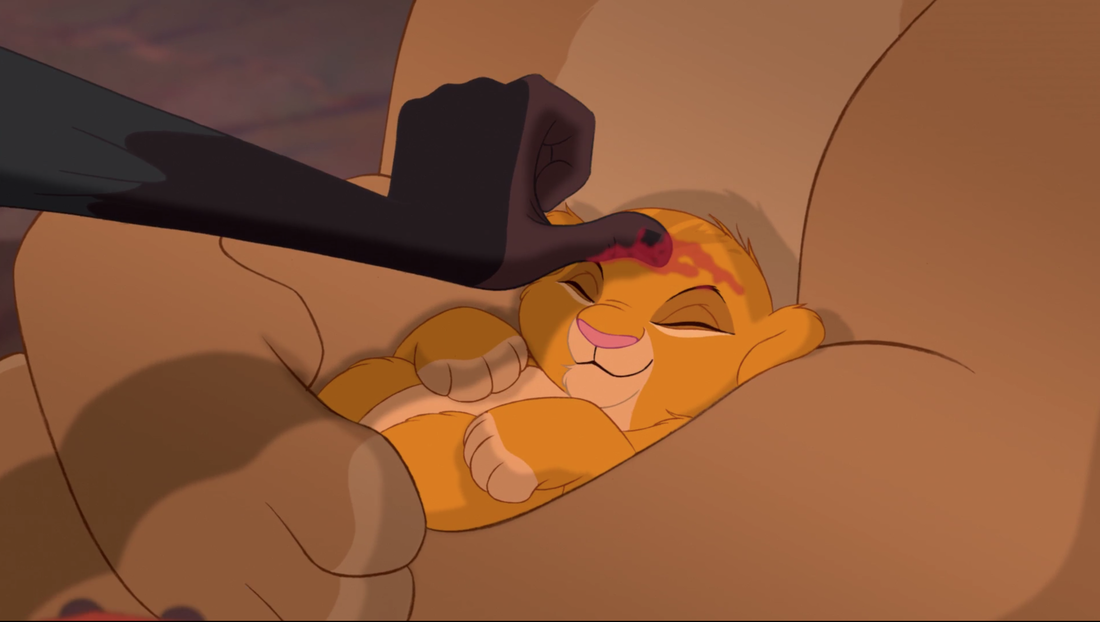
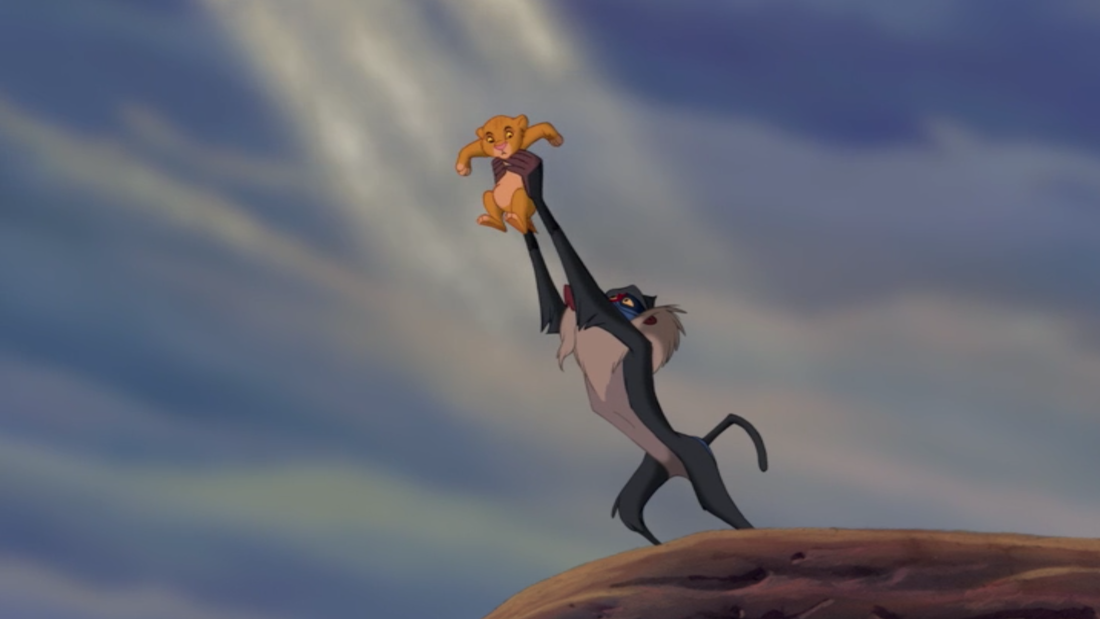
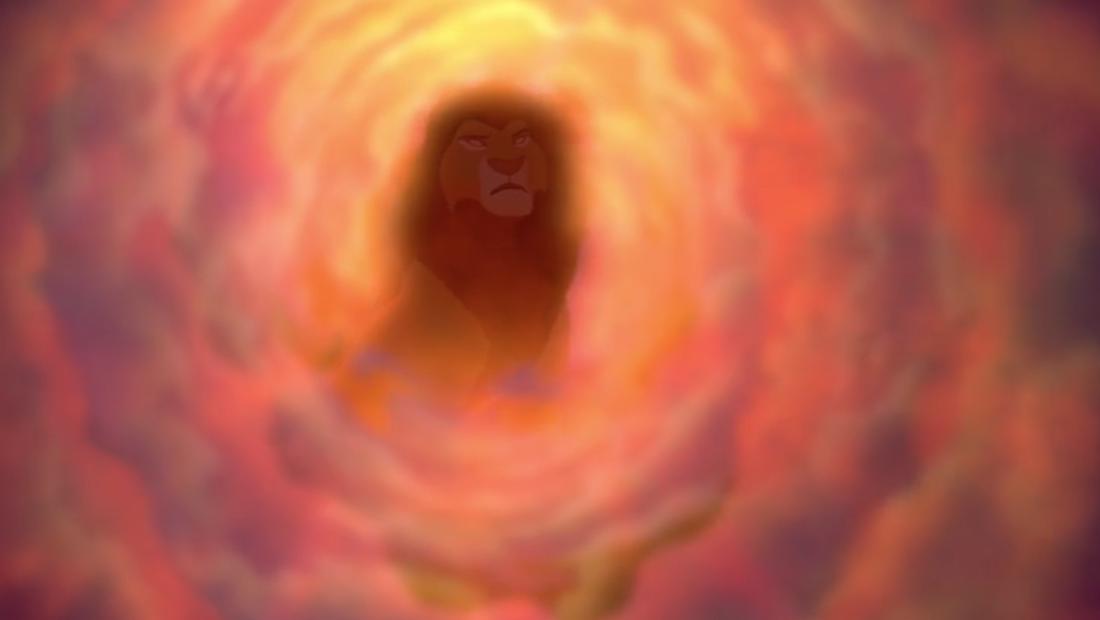

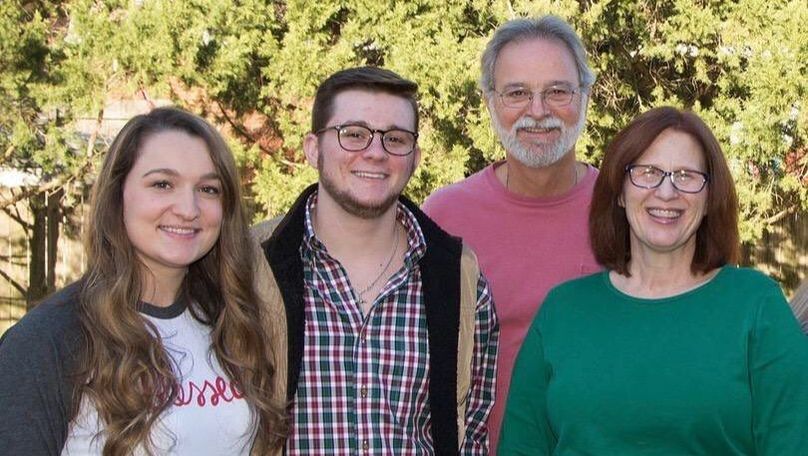
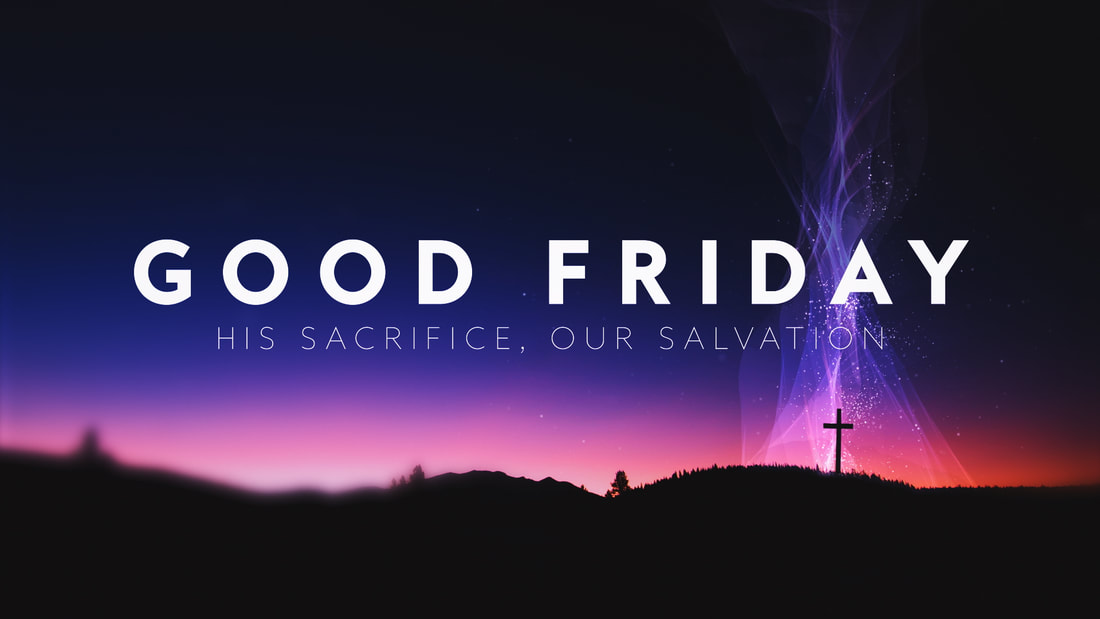
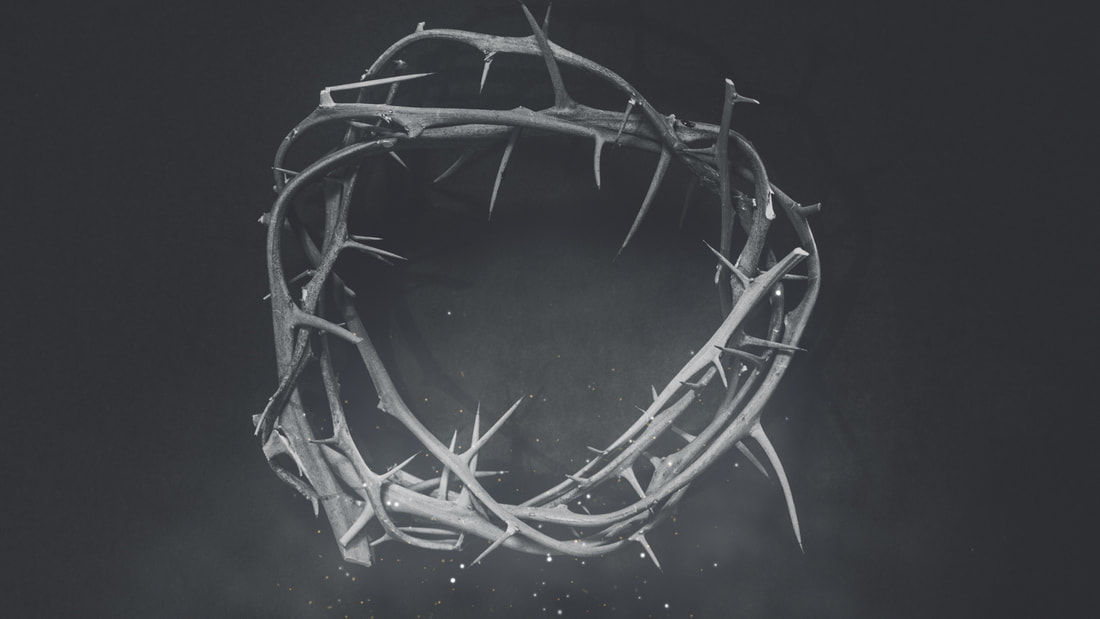
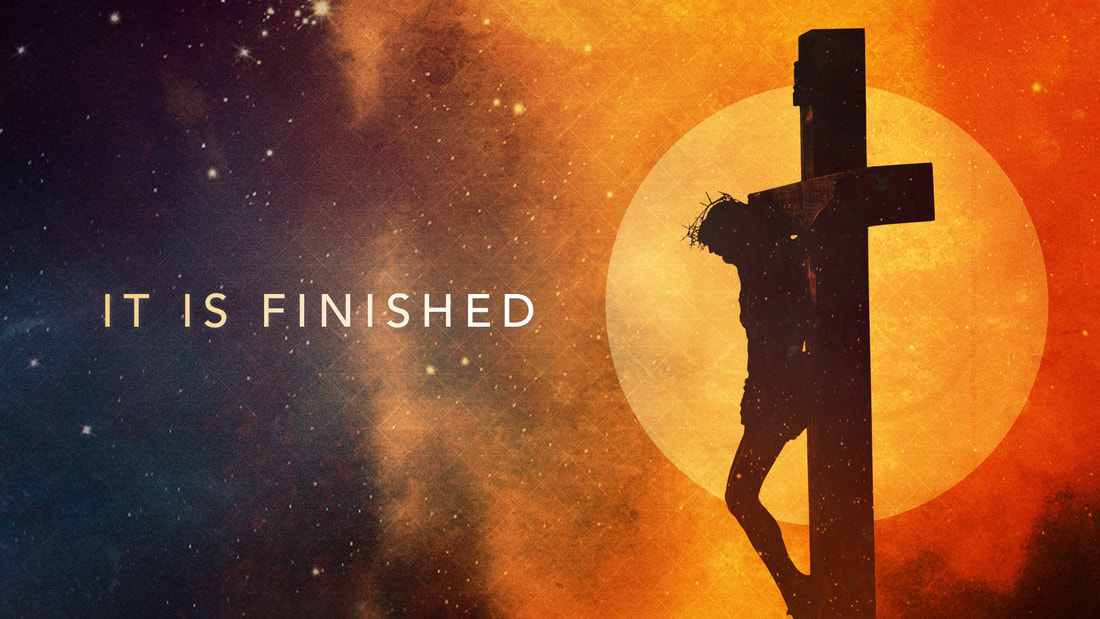
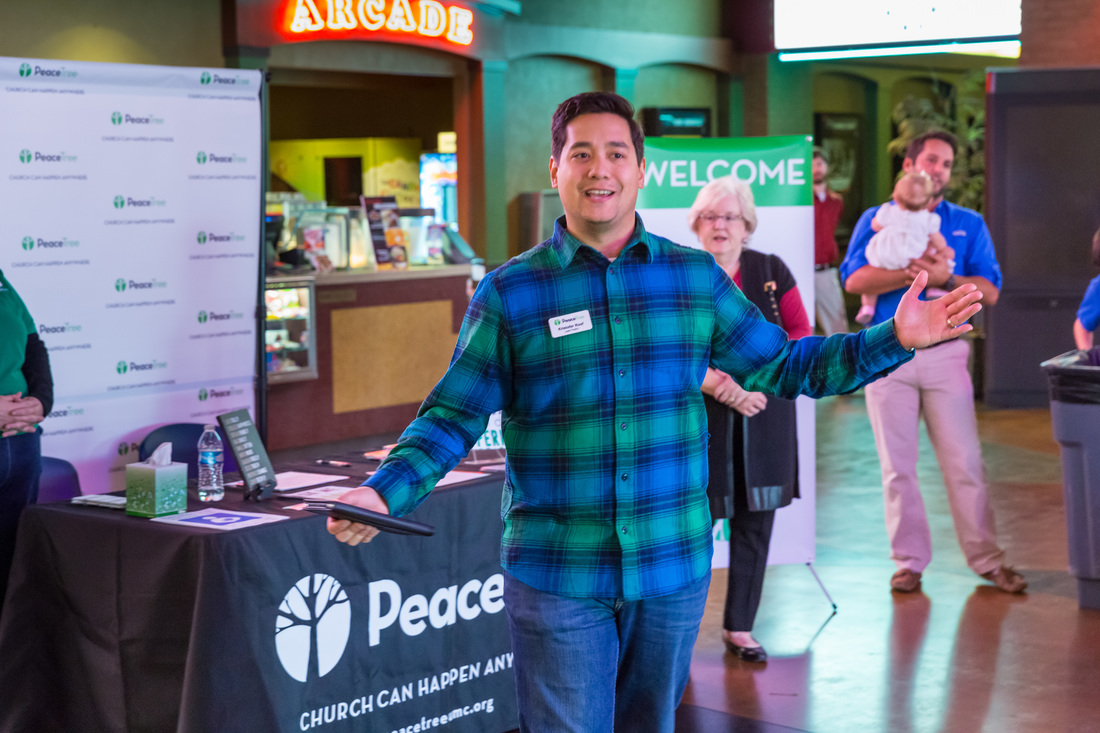
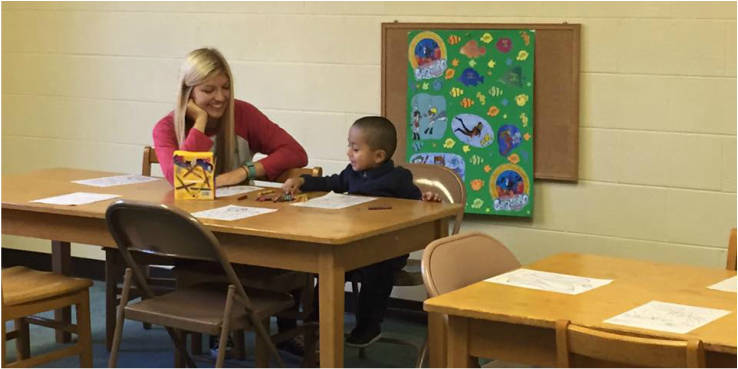
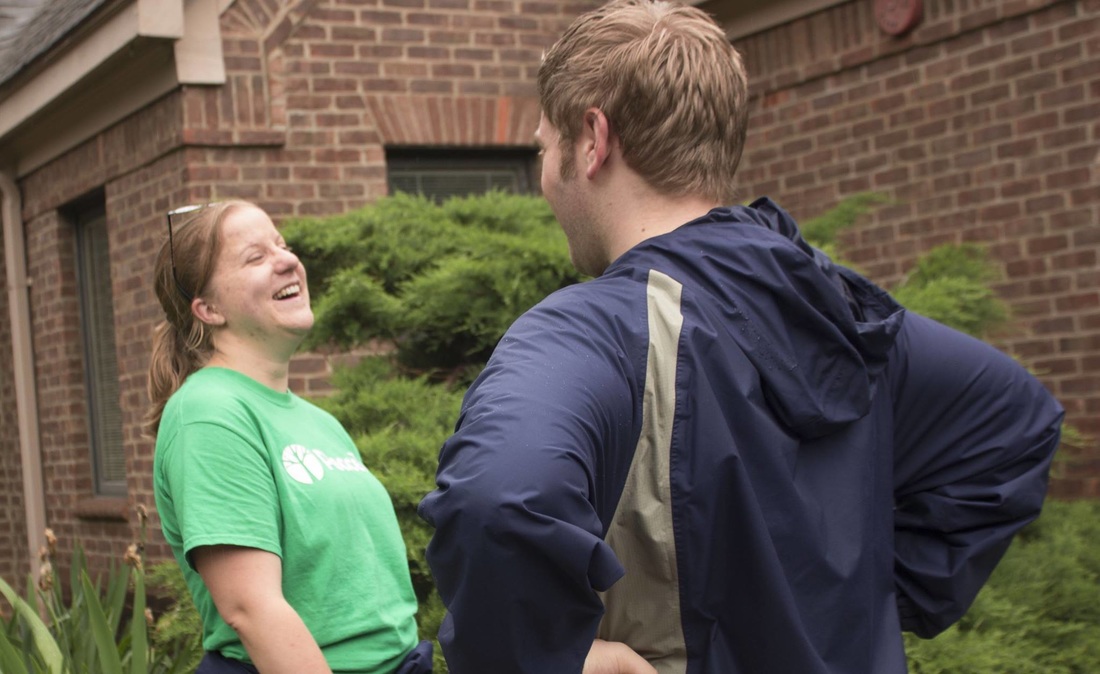

 RSS Feed
RSS Feed